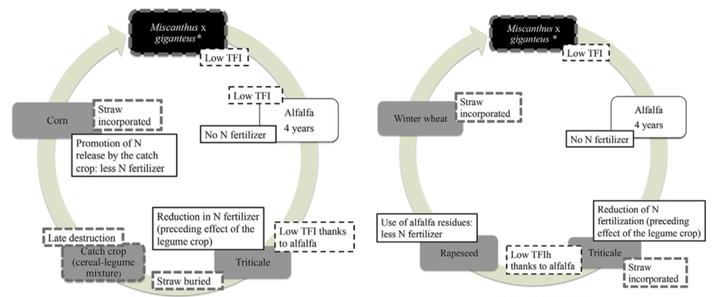Co-design and ex ante assessment of cropping system prototypes including energy crops in Eastern France

Abstract
Producing biofuels from crops is controversial due to environmental issues and to food security threats linked with the dedication of land to energy crops rather than to food production. The 2009 European Renewable Energy Directive defined the reduction of greenhouse gas (GHG) emissions as an essential requirement for biofuels. Whatever their specific lifespans, energy crops have short- and long-term effects on the following crops, thus requiring assessment at cropping system level, which is rarely done in the literature. This study aimed at designing and assessing cropping system prototypes (CSP) that include energy crops and food/feed crops in Bourgogne (France), before being implemented in the field (i.e. ex ante). CSP were first designed, using a prototyping approach involving scientists and farm advisors, and then ex ante assessed, using indicators covering the environment, energy, economic and food issues. They were compared with two cropping systems based on food/feed crops. Lastly, we analyzed the sensitivity of the CSP profitability to several scenarios of crop yields and prices (i.e. grain and forage prices for food and feed crops respectively). CSP including Miscanthus x giganteus performed better in terms of GHG emissions, energy costs, nitrate losses and pesticide use than CSP that include only annual crops requiring more inputs, but achieved lower profitability and food production capacity. The cropping systems including only food/feed crops frequently achieved higher economic outcomes and food production capacity. Lastly, CSP combining pluriannual or annual energy crops and annual food/feed crops showed satisfactory trade-offs among environmental impacts and food production capacity.